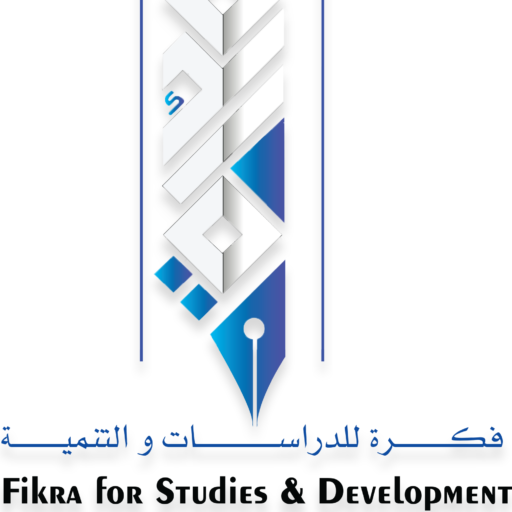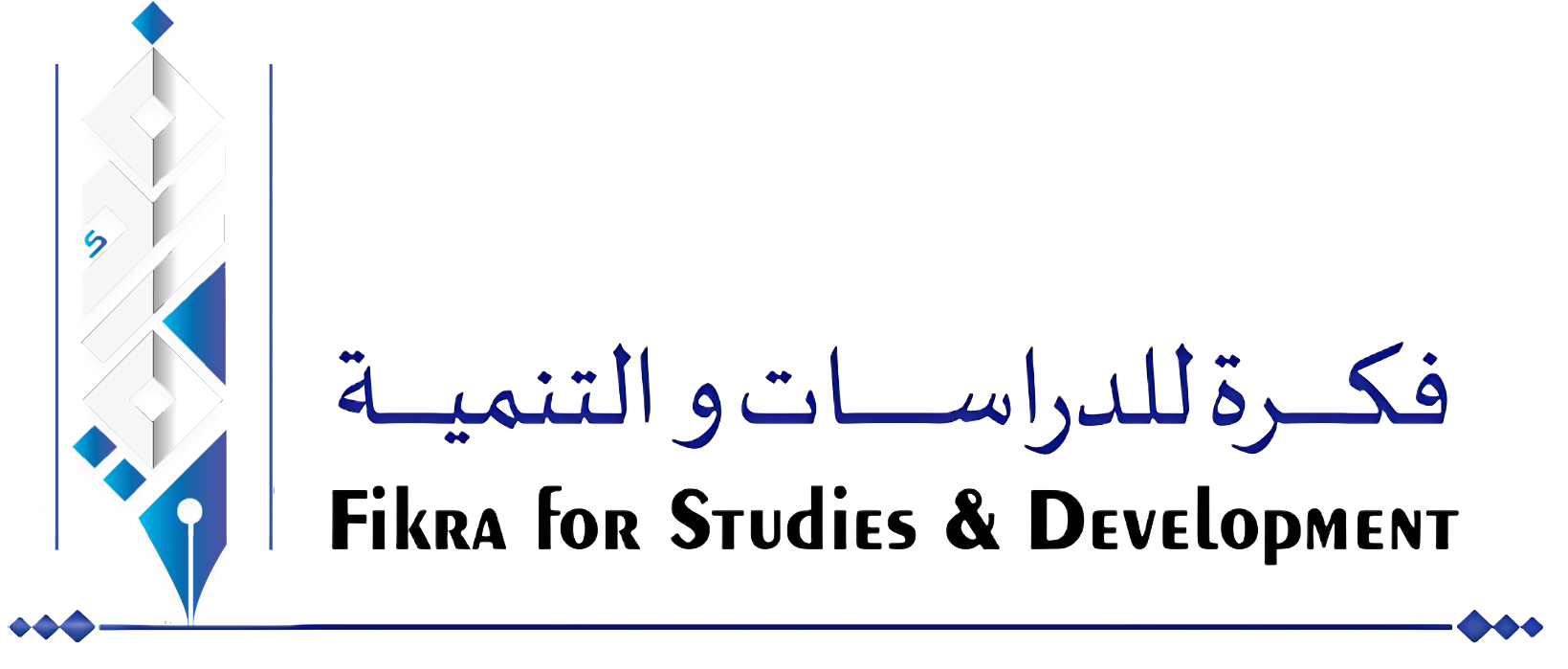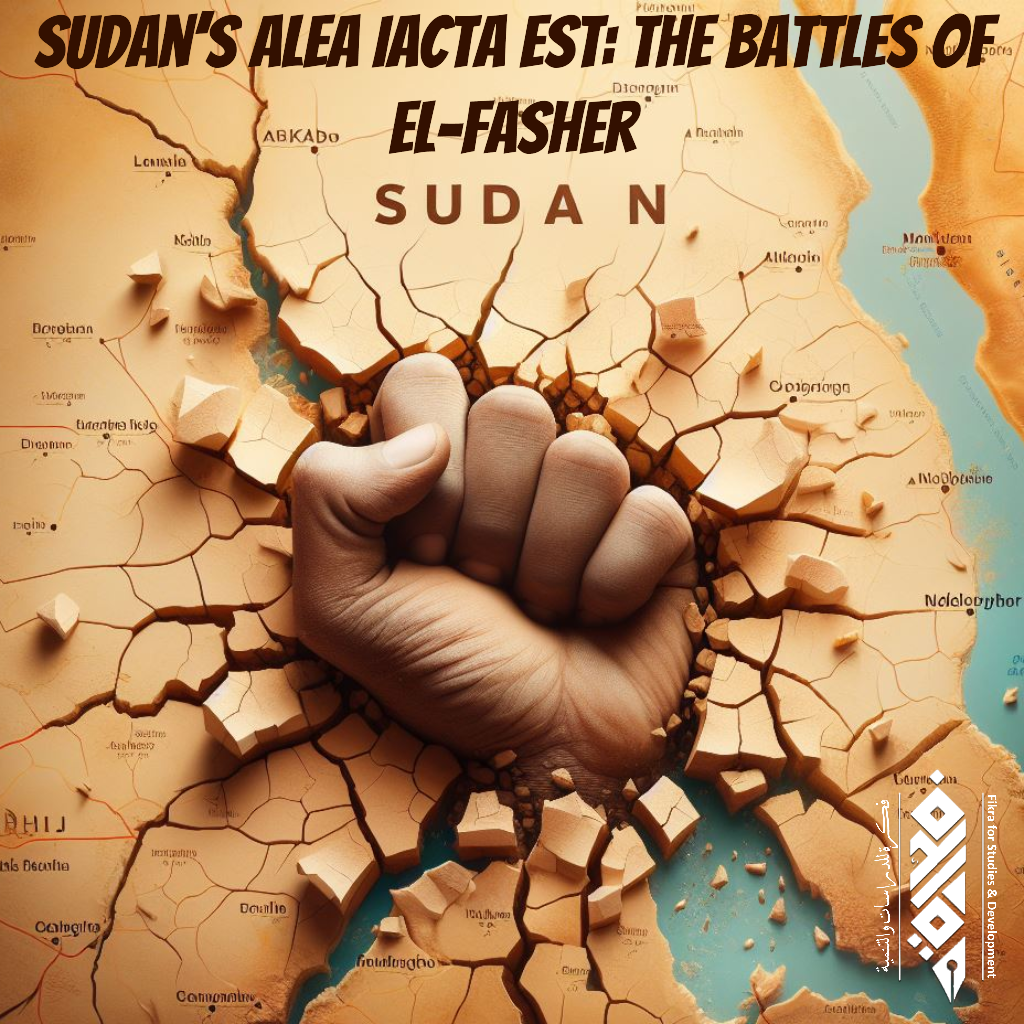Sudan’s Alea Iacta Est: The Battles of El-Fasher
Sudan’s Alea Iacta Est: The Battles of El-Fasher
Amgad Fareid Eltayeb
Over the past few weeks, the siege and attacks by the “Rapid Support Forces” (RSF) militia have escalated on the city of El-Fasher, the capital of North Darfur state, which is the last remaining state in the Darfur region that has not yet fallen under the control of the militia.
The increase in the siege and attacks coincided with the RSF militia’s retreat from the capital, Khartoum, after the Sudanese army forces succeeded in liberating the city of Omdurman, which is located in the western part of the capital. Simultaneously, the RSF presence diminished throughout the remainder of the capital, while its soldiers went busy wiping out villages and towns in the Gezira state, plundering residents’ goods and houses, and tarnishing the land and infrastructure with a scorched earth policy. This seems to be a prelude to the withdrawal of militia forces to intensify the attacks and tighten control over the Darfur and Kordofan regions in western Sudan.
The RSF and their political allies have sought vigorously since the outbreak of the war to consolidate their claim of representing social incubators of western Sudan. In July 2023, three months after the outbreak of the war, and after the political leadership of the “Forces of Freedom and Change” coalition left the country and toured the region, the “Rapid Support Forces” organized a consultative conference for Darfur leaders in Togo to mobilize political support for their raging war in Sudan. Two members of the “Taqadum” coalition leadership, currently headed by former Prime Minister Abdullah Hamdok, participated in the Togo conference, namely Nasr al-Din Abdul Bari and Mohammed Hassan al-Taayishi, with papers on governance systems, administration, and historical imbalances in the 1956 state in the context of justifying the war, in addition to others who later participated in the formation of the “Civil Support Agency for Rapid Support Forces”. After that, Abdul Rahim Hamdan Daglo, the deputy commander of the “Rapid Support Forces” and the brother of its leader “Hemedti”, met in separate meetings with the leaders of the Darfur factions that signed the Juba peace agreement, in the Chadian capital N’Djamena, under the arrangement, sponsorship, and pressure of Chadian President Mohammed Deby.
These meetings resulted in some movements converging with the positions of the “RSF”, and to the division of the “Justice and Equality Movement”, and the joining of the divided faction led by Suleiman Sandal and Ahmed Tugud to the “Taqadum” coalition aligned with the “RSF” and adopting its war justification discourse. Things became clearer after the statements of the leading member of the “Taqadum”, Taha Osman Ishaq, about the impossibility of excluding RSF militia from political participation, then came the statements of Khalid Omar Yousif, deputy chairperson of the Sudanese Congress party, and the statements of former Prime Minister Abdullah Hamdok, which try to formulate a new analysis of the war on power that is taking place in Sudan by linking it to the historical conflict of the margin and the center in Sudan.
All these attempts aim directly at changing the image of Hemedti from a bandit and professional mercenary used by the “Muslim Brotherhood” regime as one of the tools of repression, intimidation, and terror during its years of rule, and diverting attention from all the crimes committed by Hemedti and his forces by proxy for the Bashir regime in Darfur in the raging war in the region since 2003, which he continues to commit in his own right now on a larger scale that includes all parts of Sudan in his quest to rule Sudan and mortgage it to the interests of his foreign allies. To reintroduce Mohammed Hamdan Daglo (Hemedti) in the image of the righteous mutineer who carries the nobility of the margin’s issues and the burden of defending the marginalized communities of Sudan. It is an attempt to whitewash and redraw the image of Hemedti in the portrait of John Garang, as one of the heroes of national liberation. But Hemedti is not John Garang, and the “Rapid Support Forces” are not a social liberation movement that resulted from the interactions of society and its issues, but rather a repressive tool that was established on flawed bases in the service of a totalitarian regime and for the purpose of practicing political violence against specific social and ethnic groups that it now claims to represent.
The massacre of Al-Geneina by the “Rapid Support Forces” in West Darfur against the Masalit community in June 2023, which killed between 10,000 and 15,000 civilians and forced hundreds of thousands of people to flee to refugee camps in Chad, shows how dangerous these attempts are. The chants of joy and racist encouragement that accompanied the videos of the assassination of the late governor of West Darfur, Khamis Abkar, and the mutilation of his corpse, reflect the racist nature in the DNA of this militia, which is inconsistent with the claims of its representation of the margin or its war in order to achieve its interests.
The RSF continues to intensify the attack on El-Fasher – which has so far resisted falling into the hands of the militia – as a prelude to declaring an independent government in western Sudan. The militia has already appointed a civilian administration for the Gezira region, headed by Siddiq Ahmed, a member of the Umma Party: one of the parties under the umbrella of the “Taqadum” coalition. But this administration has not done anything in the context of stopping the violations and atrocities committed by the militia in the villages of Gezira.
This scheme feeds on the power ambitions that have blinded some of the civilian politicians, especially since two of those mentioned in the list above, who are striving to promote the discourse of whitening the militia’s page and promoting its claims, are descended from the Darfur region and were among the candidates whose names were pushed to assume the prime-ministership of Sudan should the framework agreement be signed prior to the war. The first is Nasr al-Din Abdul Bari, who was the Minister of Justice during the transitional period, and was the preferred candidate for the western circles, to the extent that the former American ambassador in Khartoum, John Godfrey, kept promoting his name to run the government even before the conclusion of the negotiations. The other is Taha Osman Ishaq, who has long been the link between the leadership of the “Forces of Freedom and Change” coalition, and the “RSF”, and who has gone far in washing the image of the militia leader Hemedti, affirming in a television interview that Hemedti is with stopping the war and does not have any personal ambition. As for Abdul Bari, he declared his allegiance in the first week of the war when he met with members of the US government officials and congressional staff to try to convince them that the way to stop the war is to recognize Hemedti as the legitimate head of state in Sudan.
The success of the attempt to split up Sudan will have far-reaching devastating consequences beyond the Sudanese population. The ongoing conflict in Darfur is likely to result in prolonged and violent instability within the community. This is especially alarming given the massacres and atrocities committed by the RSF militia against various social groups in the Darfur region. Furthermore, the involvement of certain political allies who are attempting to manipulate the war along ethnic lines adds to the situation’s complexity. It is important to note that even if a violent separation occurs, the war is unlikely to cease between the Sudanese army and the “Rapid Support” forces. The emergence of such a new state maybe serving the foreign interests of the RSF sponsoring countries, who are actively seeking to benefit from the war by gaining control over Sudan’s resources and wealth. However, it will also result in a significant shift in the political geography of the Sahel and Horn of Africa regions. The RSF’s political and military influence extends beyond the region’s national borders. It is commonly known that the RSF intervened in early 2023 to help quash a military coup in Central Africa, as well as its presence in Chad, Libya, and other neighboring countries.
The scheme of dividing Sudan is based fundamentally on a deadly ethnic political heresy, that aims to render identities into political weapons without a project or a political thesis related to the people, or the state service apparatus responsible for preserving their rights and caring for their interests. It feeds on a self-craving for power among some who are deluded by their continuous entitlement to it, and for that, they do not care about breaking the principles of democracy, resorting to the militia’s pickups, or even pledging to the will of external powers as long as that serves to satisfy their continuous lust for power.
Amgad Fareid El-Tayeb
Executive Director of Fikra for Studies and Development
Previously served as the Assistant Chief of Staff to the Prime Minister of Sudan; Dr. Abdalla Hamdok during the transitional period following the toppling of the Islamic dictatorship in Sudan. He has also served as a political advisor to the United Nations Special Political Mission in Sudan (UNITAMS) and a visiting fellow at the European Council on Foreign Relations. He made a prominent political and social contribution to the liberation movement to overthrow Bashir’s Islamic regime before and during the December 2018 revolution. He served as the head of the foreign relations committee of the Sudanese Professional Association and Spokesperson of it during the revolution. Founder of the Nafeer Initiative in 2013 and contributed significantly to the establishment of the Girifna and Sudan Change Now movements. He has also written extensively on cases of violations of migrants’ rights, democratization, and issues of military and civil institutional reforms in Sudan. He can be contacted by email at: amjedfarid@gmail.com , Amgad@fikrasd.com
Twitter: @amjedfarid


